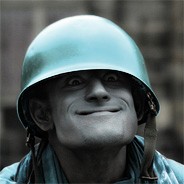перевести в косвенную речь
IS HE LIVING OR IS HE DEAD by M. Twain
"A long time ago I was a young artist and came to France where I was travelling from place to place making sketches. One day I met two French artists who were also moving from place to place making sketches and I joined them. We were as happy as we were poor, or as poor as we were happy, as you like it.
"Claude and Carl – these are the names of those boys – were always in good spirits and laughed at poverty. We were very poor. We lived on the money which we got from time to time for our sketches. When nobody wanted to buy our sketches we had to go hungry.
"Once, in the north of France, we stopped at a village. For some time things had been very difficult for us. A young artist, as poor as ourselves, lived in that village. He took us into his house, and saved us from starvation. The artist's name was Francois Millet.
"He wasn't greater than we were, then. He wasn't famous even in his own village; and he was so poor that very often he hadn't anything for dinner but cabbage, and sometimes he could not even get cabbage. We lived and worked together for over two years. One day Claude said:
“Boys, we've come to the end. Do you understand that? Everybody is against us. I've been all around the village and they do not want to sell food until we pay all the money”. There was a long silence. At last Millet said, “What shall we do? I can't think of anything. Can you, boys?”
"We made no answer. Then Carl began to walk up and down the room. Suddenly he stopped in front of a picture and said: 'It's a shame! Look at these pictures! They are good, as good as the pictures of any well-known artist. Many people had said so too.
"'But they don't buy our pictures,' said Millet. Carl sat down and said, 'I know now how we can become rich”.
“'Rich! You have lost your mind”.
“No, I haven't.” “Yes, you have – you've lost your mind. What do you call rich?” “A hundred thousand francs for a picture”. “He has lost his mind. I knew it”.
“Yes, he has. Carl, these troubles have been too much for you, and…”
“Carl, you must take some medicine and go to bed”.
“Stop it!” said Millet seriously, “and let the boy say what he wants to. Now, then – go on with hour plan, Carl. What is it?”
"'Well, then, to begin with, I will ask you to note this fact in human history: many great artists die of starvation. And only after their death people begin to buy their pictures and pay large sums of money for them. So the thing is quite clear”, he added, “one of us must die. Let us draw lots”. We laughed and gave Carl some medical advice, but he waited quietly, then went on again with his plan.
"'Yes, one of us must die, to save the others – and himself. We will draw lots. He will become famous and all of us will become rich. Here is the idea. During the next three months the man who must die will paint as many pictures as he can, sketches, parts of pictures, fragments of pictures with his name on them, and each must have some particulars of his, that could be easily seen. Such things are sold too and collected at high prices for the world's museums, after the great man is dead. At the same time the others of us will inform the public that a great artist is dying, that he won't live over three months.
“But what if he doesn't die?” we asked Carl.
“Oh, he won't really die, of course; he will only change his name and disappear, we bury a dummy and cry over it and all the world will help us. And –‘ But he wasn't allowed to finish. Everybody applauded him, we ran about the room, and fell on each others' necks, and were happy. For hours we talked over the great plan and quite forgot that we were hungry.
"At last we drew lots and Millet was elected to die. We collected the few things we had left and pawned them. So we got a little money for travel and for Millet to live on for a few days. The next morning Claude, Carl and I left the village. Each had some of Millet's small pictures and sketches with him. We took different roads. Carl went to Paris, where he would begin the work of building Millet's fame. Claude and I were going abroad.
"On the second day I began to sketch a villa near a big town because I saw the owner standing on the veranda. He came down to look on. I showed him my sketch and he liked it. Then I took out a picture by Millet and pointed to the name in the corner.
“Do you know the name?” I said proudly. “Well, he taught me!” I finished.
"The man looked confused.
“Don't you know the name of Francois Millet?” I asked him.
300
500
Ответы на вопрос:
Реши свою проблему, спроси otvet5GPT
-
Быстро
Мгновенный ответ на твой вопрос -
Точно
Бот обладает знаниями во всех сферах -
Бесплатно
Задай вопрос и получи ответ бесплатно

Популярно: Английский язык
-
Поставь глаголы ,данные в скобках,в past simple или present perfect:...
 Razin201525.09.2021 15:51
Razin201525.09.2021 15:51 -
Определите сколько букв и сколько звуков в каждом из следующих слов:...
 maksborovkov20oxdws512.01.2021 11:02
maksborovkov20oxdws512.01.2021 11:02 -
Написать сочинение на про весну, но можно про любое время года...
 nastia29612.11.2020 10:28
nastia29612.11.2020 10:28 -
Complete the sentences. use the correct form of these verbs: have,...
 aidafarhadova23.03.2021 08:12
aidafarhadova23.03.2021 08:12 -
All in all, television has its advantages and disadvantages...
 zuzin7719.09.2022 01:18
zuzin7719.09.2022 01:18 -
ВСТАВИТЬ В ПРОПУСКИ СЛОВА 2. Some managers considerable pressure on...
 Ljjr6958der8cox4511.06.2021 09:37
Ljjr6958der8cox4511.06.2021 09:37 -
1. They are...a lesson now. A) have B) has C) having 2. He s good......
 inesssa44421.03.2020 02:21
inesssa44421.03.2020 02:21 -
Написать мини сочинение о лете в узбекистане. ну чтоб там было 4-5...
 Тохо200412.09.2022 03:00
Тохо200412.09.2022 03:00 -
Мне нужна ваша . написать 6 предложений о городе белгороде (использовать...
 Keterina0905keka30.04.2020 16:06
Keterina0905keka30.04.2020 16:06 -
Состовтя из слов аредложения don t/to/i/school/on/go/sunday/saturdays/and...
 mrdilik24.07.2021 18:14
mrdilik24.07.2021 18:14

Есть вопросы?
-
Как otvet5GPT работает?
otvet5GPT использует большую языковую модель вместе с базой данных GPT для обеспечения высококачественных образовательных результатов. otvet5GPT действует как доступный академический ресурс вне класса. -
Сколько это стоит?
Проект находиться на стадии тестирования и все услуги бесплатны. -
Могу ли я использовать otvet5GPT в школе?
Конечно! Нейросеть может помочь вам делать конспекты лекций, придумывать идеи в классе и многое другое! -
В чем отличия от ChatGPT?
otvet5GPT черпает академические источники из собственной базы данных и предназначен специально для студентов. otvet5GPT также адаптируется к вашему стилю письма, предоставляя ряд образовательных инструментов, предназначенных для улучшения обучения.
